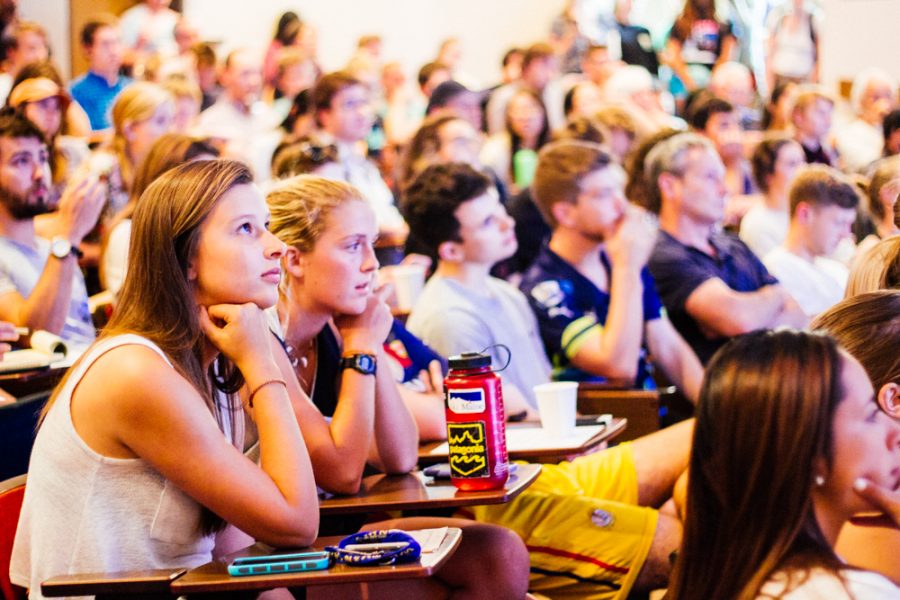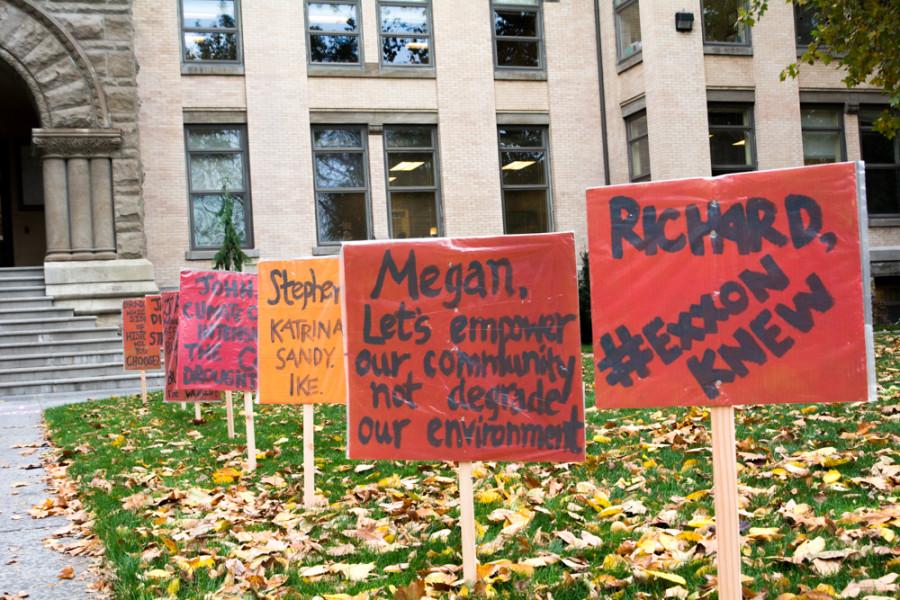After months of field work and synthesis, the student researchers from Whitman’s State of the State for Washington Latinos class presented their findings and recommendations today, February 16.
“Here in Washington, Latinos are the largest and fastest-growing minority group,” said Professor of Politics & Paul Chair of Political Science Paul Apostolidis, who teaches State of the State. “Our new research shows that Latinos still want and need to be included in our state and local communities, where in many ways they remain blocked from full participation.”
The research is the latest in a body of six years of studies compiled by State of the State students. The community based research class is celebrated for the dedicated work of its students and the body of knowledge that they have created since Apostolidis began the course in 2005. This year, the research teams partnered with the organizations Commitment to Community, One America and the Walla Walla Public Schools for their projects.
Senior Seth Dawson researched Latino representation in 10 of Washington’s counties. Dawson noted that while Latinos make up one-third of Eastern Washington’s population, they compose only .04 percent of elected positions.
“Most local elections are city-wide, which can prevent minority neighborhoods from electing candidates who represent their views,” he said. “Latino communities are systematically underrepresented in local government.”
This under-representation reduces the potential for Washington’s government to interact with Latino communities in a positive way, according to Dawson.
“Elect a Latina sheriff, and the communication and trust between law enforcement and the Latino community grows,” he said.
Junior Madelyn Peterson spoke about how immigration policies that depend on local law enforcement, and the Secure Communities program in particular, are affecting Latinos in Eastern Washington.
“Federal authorities and a few of our sheriffs, say that this process is meant to get violent criminals off the street, but that’s not what our research shows,” Peterson said. “In fact, most people who are detained are charged with only minor infractions, like driving without a license.”
Senior Adam Delgado spoke on his team’s research on the sate of ELL education in the Walla Walla Community, while Senior Katie DeCramer discussed her research concerning cultural competency in K-12 education in Walla Walla. Delgado recommended expansion of the dual-immersion program currently in place at Blue Ridge Elementary School in Walla Walla, where equal amounts of time are devoted to English and Spanish instruction in the classroom.
“Students who are multilingual and culturally competent will greatly contribute to the success of our nation in the future,” Delgado said. “Our findings prove that the dual immersion language program currently in place at Blue Ridge is an effective teaching method for ELL students and their families.”
DeCramer’s research team found low levels of staff diversity at the three schools in Walla Walla with the highest number of Latino students.
“At Walla Walla High School, only two certificated staff members are Latino, while over 600 Latino students attend the school,” DeCramer said. “We must equip schools with the tools they need to build a solid educational foundation for all students. This means increasing staff diversity, and for those already working in schools, providing the training they desire.”
Sophomore Julia Stone researched human service use and access in Walla Walla.
“In Walla Walla, one in 10 households live on less than ten thousand dollars per year. As part of the most comprehensive poverty assessment in Walla Walla to date, our maps show that this population is concentrated in only a few neighborhoods in Walla Walla with a high Latino population,” Stone said.
Apostolidis noted that the Latino population in Washington and nationwide will play important roles in the upcoming 2012 elections.
“Latinos are poised to have more influence than ever before on the outcome,” he said.
State of the State community based research is funded by the Yakima Valley Community Foundation, the Blue Mountain Community Foundation and Whitman College. For more information and complete research reports, visit www.walatinos.org.









